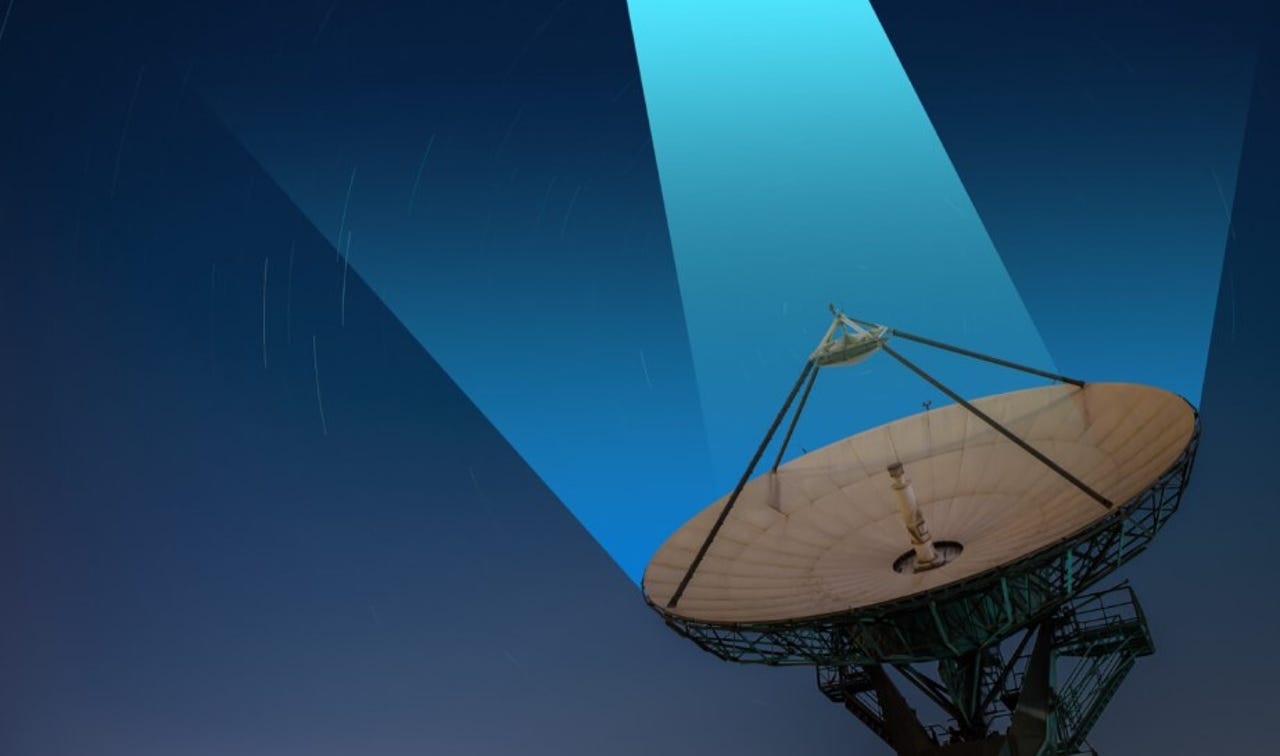































 Microsoft
Microsoft Two years ago, Microsoft launched its Azure Space initiative, focused on making Azure a strong player in the space- and satellite-connectivity cloud market. On Sept. 14, timed with World Satellite Business Week, company officials outlined how they plan to expand Microsoft's portfolio of satellite connectivity.
Officials said Wednesday that a new service called Azure Orbital Cloud Access is entering private preview, starting with U.S. government customers. Azure Orbital Cloud Access is aimed specifically at enterprise IT pros who need connectivity where there aren't a lot of options. It's especially targeted at users who cannot sustain even the smallest amount of downtime, like first responders.
Azure Orbital Cloud Access is meant to intelligently prioritize traffic across fiber, cellular, and satellite networks. The prioritized network traffic happens via SpaceX's Starlink coupled with Azure edge devices, giving customers access to Microsoft cloud services anywhere Starlink operates. SpaceX has been one of Microsoft's lead partners for Azure Space since the initiative began.
Last year, Microsoft announced Azure Orbital had reached preview, allowing customers to communicate with and control satellites from Microsoft- and partner-owned ground stations around the world with no backhaul costs into Azure. That original Azure Orbital service has been renamed Azure Orbital Ground Station, enabling Microsoft to use the Azure Orbital brand to cover multiple services (the latest of which is Azure Orbital Cloud Access).
Also: NASA says space junk is one of the great challenges of our time
Microsoft also announced today the general availability of Azure Orbital Ground Station, its first "groundstation-as-a-service" product. Azure Orbital Ground Station brings satellite data directly to Azure.
In addition, Microsoft is working with partners to make it easier to bring satellite-based communications into an enterprise cloud operation by integrating 5G and satellite communications via its Azure Orbital services. The end goal: to help satellite vendors virtualize their analog systems.
Azure Space isn't just for companies in the space industry. It's meant to appeal to public and private industry customers in the agriculture, energy, telecommunications, and government markets. It's also meant for any customer with remote-access and bandwidth needs.
Microsoft's main cloud rival, Amazon Web Services, or AWS, announced its own space-industry strategy and space unit called Aerospace and Satellite Solutions, in June 2020. AWS also has created its own satellite connection service, AWS Ground Station, and a satellite venture called Project Kuiper that competes with SpaceX's Starlink and other satellite networking providers. Microsoft announced last year that Elon Musk's Space X was one of its marquee Azure Space partners. Microsoft is working with SpaceX to provide satellite-powered Internet connectivity on Azure.
Last year, Microsoft created a new Strategic Missions and Technologies team as part of a reorg of its Cloud + AI business. This new team groups together Microsoft's U.S Federal business, Azure Space & Mission Engineering; Azure for Operators (its telco-focused business); and Azure Quantum, and is designed to accelerate those businesses.
"You can't have a hyperscale cloud without a space solution," said Jason Zander, executive vice president of the Strategic Missions and Technologies business. Zander added that Microsoft's Azure Space work is about putting edge technologies as close as possible to where computing happens.
 Tags quentes :
Inovação
Espaço
Tags quentes :
Inovação
Espaço